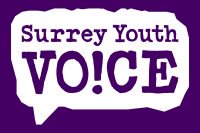This list has been put together by young people who have attended participation groups for care-experienced children and young people facilitated by Surrey Youth Voice. The young people who created this list were aged between 13 and 25 years old and have care experience.
Whilst this list was created by care-experienced children and young people and those who have left care, it is important to note that these are only examples of alternative words and phrases that can be used. Young people feel that it is the decision of each individual child or young person to decide which words, phrases or terminology should be used.
We have listed these words alphabetically and have included a definition to help explain what the word means if you feel it will help the young person you are working with or helping. Some of these terms required additional notes and comments, in these sections are direct quotes from the young people who created this list.
The direct quotes from young people are based on their own individual thoughts, and are not reflective of all care-experienced children and young people.
A to Z
C
Care Leaver
Meaning: a care leaver is an adult who has spent time living in the care system, away from their family. This could be with a foster family, in a children's home or supported housing service, or under another arrangement as agreed by their social worker. Young people usually leave care when they are 18 years old.
Preferred:
- 18+ young person
- A young person who is about to be independent and living their own life
- An adult
- An adult with care experience
- Care experienced adult
- Care graduate
- Care leaver
- Over 18 care leaver
- Someone who has been in or experienced care
- Someone who was previously looked after
Notes and Comments:
"I like care experienced and care leavers. 18+ young person doesn't make sense in this context, and care experienced adults aren't always young adults either"
Care Plan
Meaning: every child and young person who is looked after will have a Care Plan. The provision of services and other help for them and their family will be set out in the plan. The Care Plan will say what the council and other agencies will do to meet the child's needs including health.
Preferred:
- Care plan
- Future plans
- Growth scheme
- How to help me
- Life plan
- My life
- My plan
- Personal plan
- Support plan
Notes and Comments:
"It's not my plan, it's the plan for how they want to care for me. That term is fine"
Challenging behaviour
Meaning: a person's behaviour can be defined as "challenging" if it puts them or those around them (such as their carer) at risk or leads to a poorer quality of life. It can also impact their ability to join in everyday activities. Challenging behaviour can include aggression, self-harm.
Preferred:
- Behaviours of concern
- Controversial attitude
- Difficult thoughts
- Distressed feelings
- Hard times
- Having trouble coping
- Is distressed
- Melt down
- Misunderstood
- Struggling to control emotions
- Terms used should be compassionate
- Unsociable behaviour
Notes and Comments:
Professionals and carers need to try to understand what is causing a change in behaviour "We don't do it on purpose"
Contact
Meaning: it is where the parent and child see each other 'face-to-face', and can include daytime contact, overnight stays, and holiday contact.
Preferred:
- Family time
- Birth family time
- Making plans to see our family
- Quality time with family or friends
- Seeing Dad, Mum or Grandma and so on
- Seeing family
- Seeing who I want to see
- Time with loved ones
- Visit
Notes and Comments
"This is on an individual basis. Workers should ask children and young people when they come into care what they would prefer to call 'contact' and throughout their care as situations may change."
"Anything, contact is a bad word"
"It's not always seeing who you want to see, as you may not want to see them, or not be allowed to see people that you want to see. I think just be literal: say seeing 'x' person"
Contact Centre
Meaning: a child contact centre is a safe, friendly and neutral place where children of separated families can spend time with one or both parents and sometimes other family members.
Preferred:
- Family centre
- Family house
- Family meet up centre
- Secure place to see loved ones
- Visit centre
Corporate Parent
Meaning: the collective responsibility of the council, elected members, employees, and partner agencies, for providing the best possible care and safeguarding for the children who are looked after by that Corporate Parent or Board.
Preferred:
- Care decision group
- Care helpers
- Corporate parent
- Local authority
- Managers
- Non-parent guardians
- Officials
- People who can help
- Person legally responsible for you
- Social or children's services
- The decision makers
- The safeguarding board
Notes and Comments:
"Don't refer to us as your child when you don't act like our parents."
"Do not use the phrase 'our children'"
"Corporate parent communicates across the responsibility that professionals have to replace the care and support someone would often get. 'People who help' is BS as they often don't actually help you. Corporate parent is the best term as it stands, none of those alternatives work right."
From a foster carer: "We are more of the parent; we are there 24 hours a day 7 days a week"

